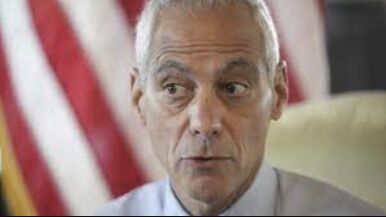U.S. Ambassador slams China's economic coercion, accuses them of exploiting Japan's seafood ban
U.S. Ambassador to Japan, Rahm Emanuel, accuses China of economic coercion by imposing a seafood import ban. Despite the ban, Chinese fishing boats continue to fish in Japanese waters. Emanuel criticizes China's tactics and highlights their disregard for Japan's economic waters. He supports his claims with social media posts showing Chinese vessels fishing after the embargo. Emanuel has previously criticized China for various actions and emphasizes the importance of truthfulness in the relationship.
In a scathing accusation, U.S. Ambassador to Japan, Rahm Emanuel, has accused China of employing economic coercion against Japan by imposing a ban on Japanese seafood imports. The ban was enacted in response to Japan's release of treated wastewater from the damaged Fukushima nuclear plant into the ocean. Despite this embargo, Chinese fishing boats have been seen continuing to fish in Japanese waters, further exacerbating the situation. Emanuel, delivering a speech in Tokyo, condemned China's actions, labeling economic coercion as a persistent and pernicious tool in their economic toolbox. He emphasized that China's ban on Japanese seafood, a crucial market for Japan's fishing industry, is just the latest example of their coercive tactics.
The ban has dealt a severe blow to Japan's fishing industry, with China, as the largest market for Japanese seafood, cutting off a vital source of income. The U.S. Ambassador raised concerns over China's blatant disregard for Japan's economic waters, as Chinese boats continue to fish in the region while simultaneously imposing a unilateral embargo on Japanese fish.
Emanuel believes that China's intention is to isolate Japan by exploiting its dependence on seafood exports. The release of treated wastewater from the Fukushima nuclear plant, which began on August 24, has drawn international attention and controversy. China was quick to respond with a ban on Japanese seafood imports, accusing Tokyo of releasing radiation-contaminated water into the ocean. However, the International Atomic Energy Agency has stated that the planned release of treated wastewater will have a minimal impact on the environment, marine life, and human health.
To further support his claims, Emanuel took to social media, posting four photos that purportedly show Chinese vessels fishing off Japan's coast on September 15, after the implementation of the seafood embargo. These posts demonstrate the stark contrast between China's actions and their stated concern over radiation contamination. This isn't the first time Emanuel has voiced criticisms of China. On September 15, he speculated about Chinese Defense Minister Li Shangfu possibly being placed under house arrest, as he had not made any public appearances for several weeks.
Furthermore, Emanuel drew attention to China's Cabinet lineup, comparing it to Agatha Christie's novel 'And Then There Were None,' highlighting the disappearances of key officials. He also accused China of utilizing artificial intelligence to disseminate false claims, such as attributing the wildfires in Maui to U.S. weather weapons and accusing the U.S. Army of introducing COVID-19 to China. Emanuel believes in the importance of maintaining a mature relationship with China, emphasizing dialogue and conversation. However, when faced with behavior that crosses the line, he emphasized the need for truthfulness and calling out disinformation for what it is.




